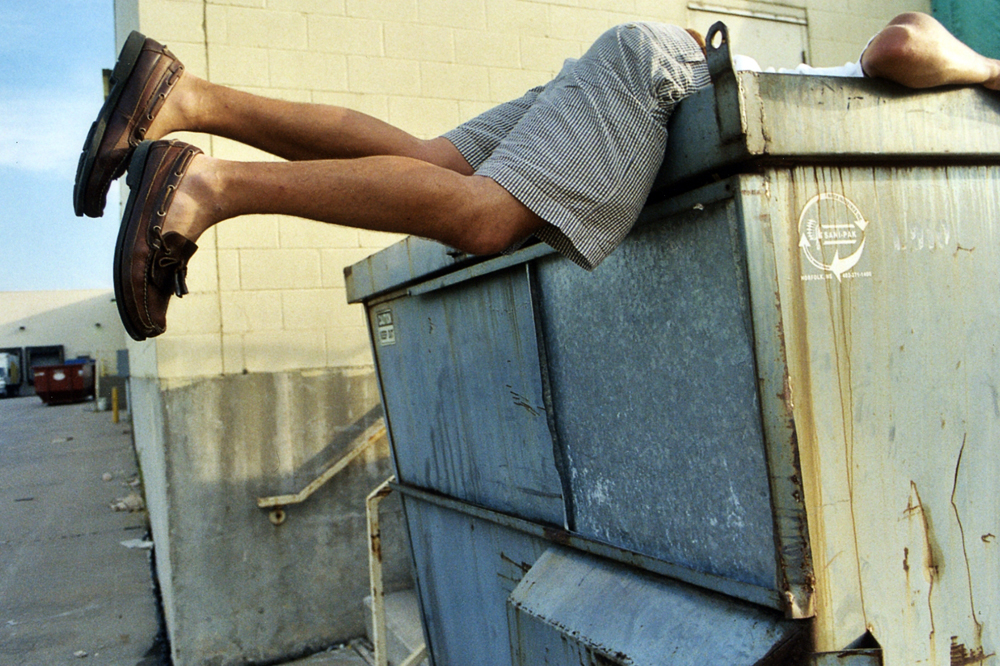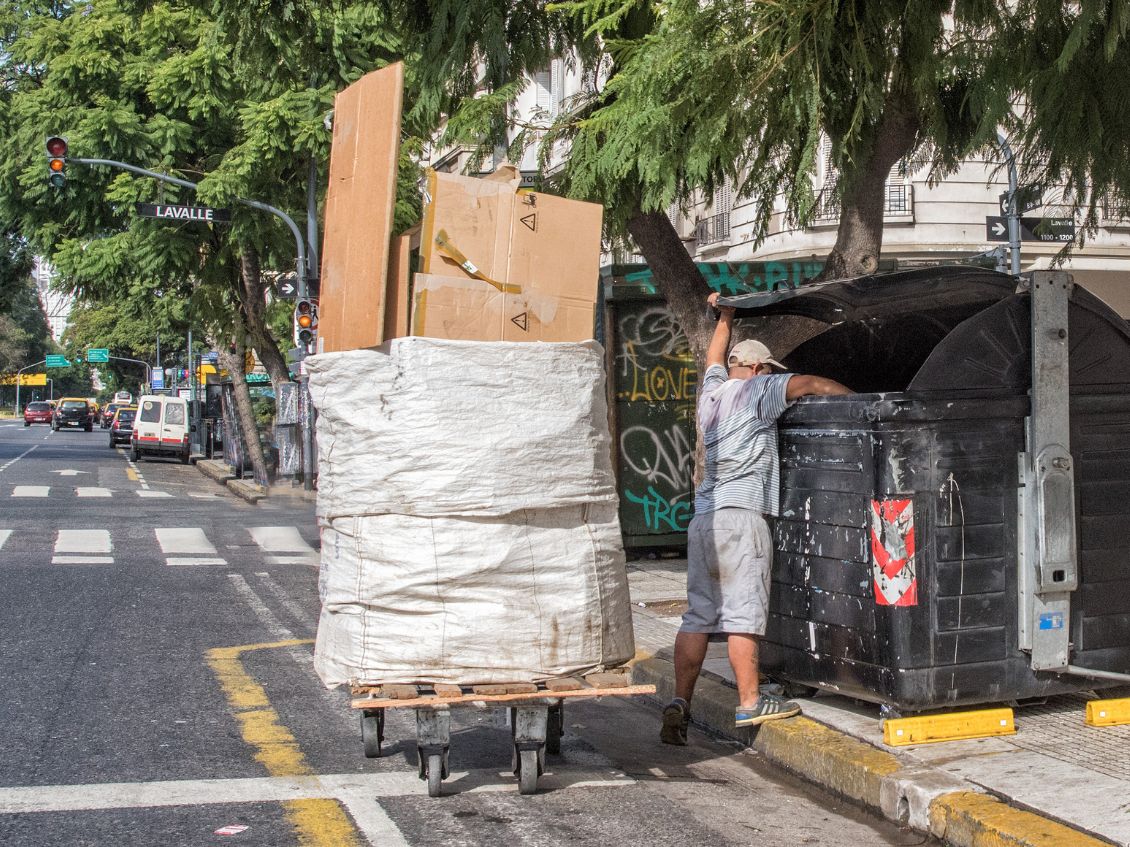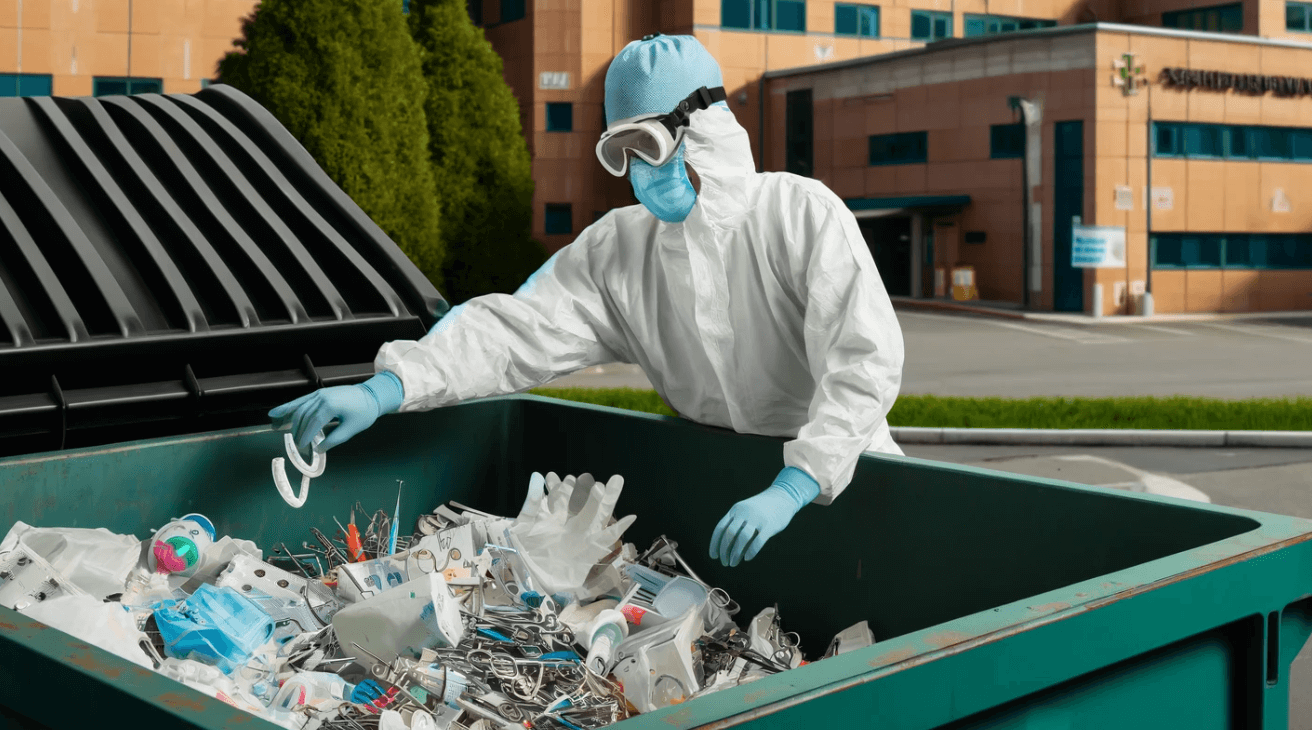Dumpster diving can reveal unexpected treasures, but it’s important to be aware of your state’s laws before starting. Regulations vary, and you definitely want to avoid any fines or legal trouble.
This article will guide you on where dumpster diving is allowed and what safety measures to consider.
What states allow dumpster diving?
Dumpster diving is legal in most US states, including California, Texas, and New York, though local regulations may apply. Always check city ordinances for specific restrictions.
Key Takeaways:
- Dumpster diving is generally legal in the US, but local laws vary.
- The 1988 Supreme Court case California v. Greenwood ruled that discarded trash in public spaces isn’t protected by privacy laws.
- Trespassing on private property or diving in restricted areas is illegal.
- Always check local ordinances and seek permission when in doubt.
- Prioritize safety and consider ethical implications when dumpster diving.
Is Dumpster Diving Legal in the United States?

In general, it is legal to dumpster dive in the United States, but there are some important details to consider. In 1988, the Supreme Court case California v. Greenwood ruled that once trash is discarded in the public domain or spaces, it’s no longer protected by privacy laws.
This means anyone can legally go dumpster diving and take items including microwaves from trash bins, as long as they’re not trespassing.
State and Local Laws
While dumpster diving is not illegal at the federal level, state and local laws vary. Many states don’t explicitly prohibit it, but some cities have restrictions.
For example, trespassing on private property or diving in areas with “No Trespassing” signs is dumpster diving illegal. Always be cautious of these local rules to avoid fines or legal trouble.
If you have junk to get removed from your private properly, you can simply hire our dumpster rental in Levittown, Valley Stream, Massapequa, and many other similar places. We’ll take care of everything for you.
If you’re in the state of Wisconsin, I have written a separate post that explains whether dumpster diving is legal in Wisconsin.”
Businesses and Public Property
Public dumpsters, such as those in parks or non-restricted areas, are usually safe to dive in. However, businesses may have their own policies and could call the authorities if they believe their trash is being taken without permission. It’s a good idea to seek permission from business owners if you’re unsure about their stance on dumpster diving.
By following these guidelines, you can dumpster dive legally and responsibly.
States Where Dumpster Diving is Legal
Dumpster diving is generally legal in many states, but the key factor is the location. States such as California, Texas, and New York do not have overarching laws prohibiting dumpster diving. However, local regulations may impose certain limitations, so it’s essential to verify the rules in your city before diving in.
Focus on Public Areas

In states where dumpster diving is permitted, public spaces are typically safe. If dumpsters are located in places such as public parks or behind businesses without “No Trespassing” signs, you’re usually in the clear. Always show respect for property and avoid restricted or gated areas.
Local Ordinance Considerations
Even in places where dumpster diving is allowed, the rules can vary. Some cities may completely prohibit it or impose fines for diving in specific areas. It’s a good idea to check your local government’s website or contact city hall for detailed guidelines to ensure you’re following the law.
States With Restrictions on Dumpster Diving
While dumpster diving is legal in many states, there are some restrictions you should know about. States such as Florida, Georgia, and Illinois permit dumpster diving but have strict regulations concerning property lines and trespassing.
Trespassing Laws
Most restrictions focus on trespassing. If a dumpster is located on private property or behind a locked gate, entering it without permission is illegal, regardless of the state. In some cases, you could even be arrested for dumpster diving.
Always watch for “No Trespassing” signs, fences, or locked gates before diving. Even if it’s not clearly marked, businesses have the right to report trespassing incidents.
If you have a large amount of junk on your private property, we highly recommend opting for a dumpster rental service like ours to help clean up your space.
Public Safety and Health Regulations
Some cities enforce strict health and safety regulations, especially regarding food waste. For example, in California, it is illegal to take food from dumpsters if it poses a health risk. If you’re looking for food, avoid places where local health codes restrict access to food waste.
Solutions for Safe Diving
To avoid problems, it’s best to use public dumpsters or get permission from business owners. Make sure to check local ordinances to know the specific rules in your area. By following these steps, you can keep your activities legal and stress-free.
Risks and Penalties of Dumpster Diving

Dumpster diving carries legal and safety risks, even in states where it is permitted. One of the main issues is trespassing. If you are caught diving on private property without consent, you may face fines or, in some instances, arrest.
Fines and Legal Actions
In different areas, fines can range from just a few dollars to several hundred, depending on local laws. Business owners may also pursue theft charges if they believe the discarded items still hold value. It’s crucial to exercise caution and avoid diving in restricted or clearly marked zones.
Health and Safety Hazards
In addition to legal risks, there are health hazards to consider. You may encounter sharp objects, spoiled food, or dangerous materials including TV. To minimize these risks, it’s wise to wear gloves, carry a flashlight, and avoid dumpsters that contain food waste or potentially harmful items.
By staying vigilant and taking the right precautions, you can reduce both legal and health risks while dumpster diving.
Tips for Dumpster Diving Safely and Legally
Dumpster diving can be a rewarding experience, but it’s important to prioritize safety and legality. By following these tips, you can steer clear of legal issues and ensure your safety.
Know Local Laws
Before diving, research your city’s regulations. Some places allow dumpster diving, while others restrict it. Always check for “No Trespassing” signs or gated areas, as entering these can lead to legal trouble. It’s also a good idea to ask permission if you’re unsure.
Dive in Public Areas
Focus on dumpsters located in public spaces such as parks or behind businesses where access is open. Steer clear of areas that are clearly designated as private property or secured with locks or fences. Sticking to public areas minimizes the risk of trespassing charges.
Some people may want to recycle a microwave but not sure If they are allowed to dump it, donate it. You can ask such people and get things for yourself in places like public areas.
Stay Safe and Sanitary
Always bring gloves, wear sturdy shoes, and carry a flashlight. Be careful of sharp objects or hazardous materials, particularly in dumpsters close to construction sites. Only dive for food if you’re sure it’s safe.
By taking these precautions, you can reap the rewards of dumpster diving while ensuring you stay safe and within the law.
Ethical and Environmental Considerations
Dumpster diving isn’t merely about discovering free goods; it also carries ethical and environmental significance. Being aware of these factors can enable you to dive in a responsible manner.
Reducing Waste
A major environmental advantage of dumpster diving is its role in reducing waste. By salvaging usable items from the garbage, you play a part in keeping them out of landfills. This helps decrease pollution and ease the burden on waste management systems. It’s a small yet impactful way to engage in sustainability.
Ethical Concerns
While diving helps reduce waste, it’s important to consider ethics. Some businesses or individuals might see it as taking advantage of their discarded items, even if they’re no longer needed. Being respectful of property and mindful of the impact on businesses can help maintain a positive balance.
A Mindful Approach
When dumpster diving, think about the purpose. Focus on rescuing items that would otherwise go to waste, and avoid taking more than you need. This approach can keep the practice both ethical and environmentally beneficial.
Frequently Asked Questions
1. Is dumpster diving legal everywhere in the U.S.?
While dumpster diving is technically legal, local laws vary, so check your city’s ordinances before diving.
2. Can I get fined for dumpster diving?
Yes, if you’re trespassing or violating local laws, you could face fines.
3. What should I avoid while dumpster diving?
Avoid locked or gated dumpsters and areas marked with “No Trespassing” signs to stay legal.
Conclusion
Diving into dumpsters can be an eco-friendly way to reduce waste and discover useful items, but it’s crucial to stay within the law. While it’s legal in many states, local regulations and property rights can differ, so always make sure to do your research.
To avoid legal complications, focus on public dumpsters and stay aware of trespassing laws. Be sure to check local ordinances, particularly if you’re scavenging for food. Staying informed helps ensure you dive safely and responsibly.
By following these tips, you can enjoy dumpster diving while reducing waste and minimizing legal risks.


